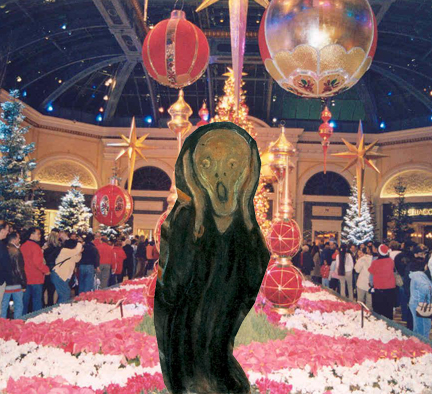Today is the feast day of St. Nicholas. We knew a family that celebrated this day rather than Christmas. As I mentioned in a recent post at Street Prophets, there is a part of me that really likes that idea, as Christmas gets a little overwhelming sometimes.

Read Aunt Arctic's diary about St. Nicholas day here.
I've taken this information from The Encyclopedia of Christmas by Gerry Bowler who is an historian who has had a life long interest in the history of the festival. (He has just published Santa Claus: A Biography.)
St Nicholas was a popular saint in medieval times. He was purported to have been born in 4th century Patara (now Turkey) and was active in the early church, and it is told that he attended the Council of Nicea in 325. Legends about the saint centre on his generosity as a gift giver and because he performed miracles.
Like many legends, these vary with the teller and the time. One that Bowler offers is about the three daughters of a poor man who were destined to be prostitutes, so SN gave them each a bag of gold to be used as dowries. (These have often been referred to as three balls of gold and as SN was the patron saint of money-lenders and bankers this became the symbol of pawn brokers.)
After his death he became patron saint of Greece and Russia, choirboys, Vikings, perfumers, barrel-makers, thieves, unmarried women, students, children and sailors, which covers a lot of ground. His tomb is in Bari, Italy.
By 1100, St Nicolas had become associated with the Christmas season: his feast day (6 December) marked the beginning of the Feast of the Holy Innocents, which in some churches lasts until December 28th. By the 16th century, children in Germany were hanging stockings for him to leave gifts, although he didn't start bringing gifts to English children until the 19th century.
Saint Nicholas was eventually replaced by the Christ Child as symbol of the giving season, as well as more secular givers, and the gift giving day was moved to December 25th or in some cases New Year's Day. He is considered to be the inspiration for the American Santa Claus.
In 1969, St Nicholas was one of those Roman Catholic saints who was demoted from "universal" to "optional" and apparently some of his relics were moved to New York in 1972.
This is just a short introduction, of course. Does anyone else have St Nicolas stories to share?. |
![]()



|